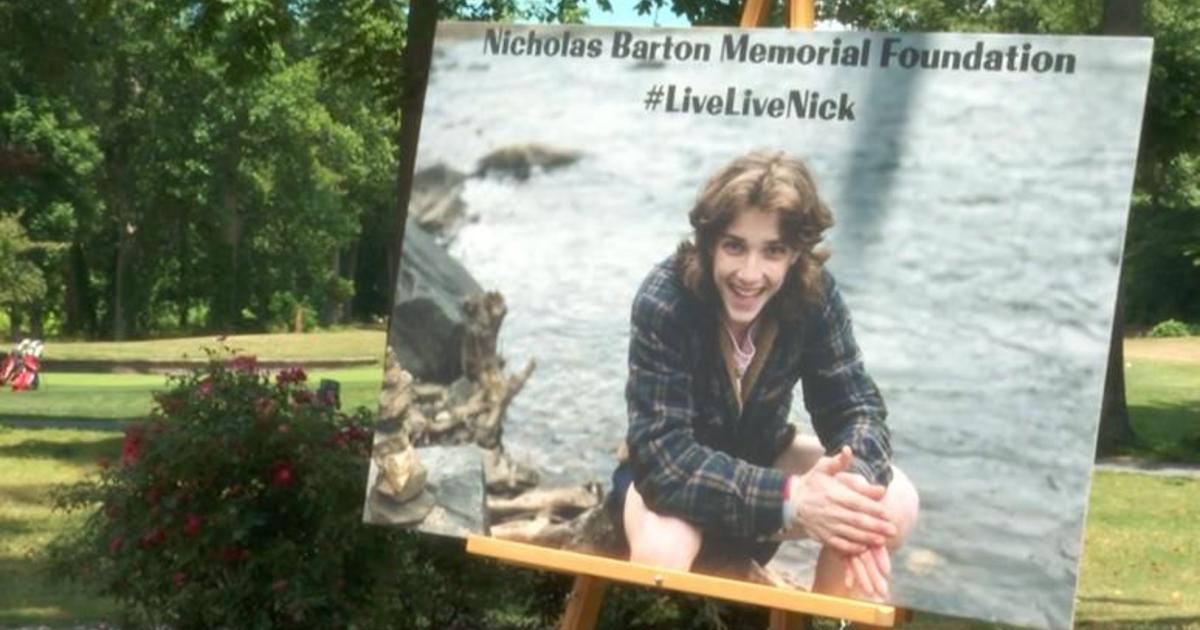Lawmakers, Governor Reflect On Session & Which Bills Made The Cut
ANNAPOLIS, Md. (WJZ) -- A new budget deal for Maryland provokes some controversy. Powerful political leaders engage in a battle of wills over cuts made by the governor. And the battle does not appear to be over.
Political reporter Pat Warren has more on what's still up in the air.
The General Assembly shifted some of the governor's priorities, but that's only part of the drama that's playing out in Annapolis.
The new Republican governor and the veteran Democrat House and Senate leaders have tested their mettle and seem cool about the fight.
"I can't imagine why feelings are hurt. We're not going to agree on everything. We didn't get everything we wanted," Governor Larry Hogan said.
Governor Hogan had a budget that included cuts the General Assembly didn't like, so lawmakers moved money around: $200 million out of the state's $40.5 million budget to distribute additional cost of education funds for economically challenged school districts, to replace the two percent state employees pay raise that the governor cut from the budget, and to reinstate the Medicaid rates paid in some health programs.
"I also reminded legislators that every penny added to one program must be taken from another. But in the end, they ignored most of that. The budget that was passed adds $1.7 billion to the structural deficit over the next four years," the governor said.
But the Democratic leaders are confident they did the right thing.
"It was an excellent session," said Senate President Mike Miller.
"To echo your comments about the members General Assembly, both political parties did a great job," said House Speaker Mike Busch.
The state leaders signed 120 bills Tuesday in a spirit of camaraderie, but there's an underlying tension over the prospect that the governor won't spend that $200 million the way the General Assembly intended.
"We're going to have to review all the actions that were taken," Governor Hogan said.
And wait for the next shoe to drop.
We expect to hear fallout Wednesday when the Board of Public Works, which controls the budget, meets.
The General Assembly also passed bills to repeal the "rain tax" and expand charter schools, but it voted against some tax breaks and restoring state pension funds.
Fracking Moratorium:
Permits to conduct hydraulic drilling for natural gas using the process known as fracking could not be granted in Maryland until October 2017.
Stormwater Fees:
State-mandated stormwater management fees would end, but nine counties and the city of Baltimore would need to show they are paying to meet federal mandates to clean polluted stormwater.
Charter School Improvement:
Well-performing and financially sound charter schools could get more flexibility for operations. Calls for a school funding study and directs most chartering authority to local school board level.
Travel Sites Sales Tax:
Third-party travel websites would have to pay all of the state's 6 percent sales tax, closing what supporters of the bill say is a loophole, but opponents say is a new tax.
Marijuana Paraphernalia:
Marijuana-related paraphernalia like pipes would be decriminalized. Smoking marijuana in public also would become a civil offense, punishable by a fine of up to $500.
False Claims:
Whistleblowers with knowledge of fraud against state and local governments could receive an award if they come forward with information and the government recoups money as a result.
Information Act:
The Maryland Public Information Act would be updated. A five-member compliance board would be created to address fee disputes and establish an ombudsman position to handle disagreements between government agencies and members of the public attempting to access records.
Public Campaign Finance:
A voluntary check off on individual income tax returns would be restored for public campaign financing for governor.
Maryland Second Chance Act:
People with certain non-violent offenses could request that their criminal records be shielded from the public eye. The person would have to have completed their entire sentence, including probation and parole, and maintained a clean record for three years.
Military Retirement Pensions:
The state's $5,000 tax exemption on military retirement pensions for people over 65 will increase to $10,000.
Frederick Infant Death:
Added protections would be in place to prevent foster care children from being returned to abusive biological parents. It would give social service agencies the ability to keep children in foster care, if there is severe abuse by biological parents, or parents do not protect their children from serious mistreatment.
Ex-Felons Voting Rights:
Ex-felons would have their voting rights restored after their release from prison. They would not have to complete probation and parole to regain voting rights.
Artificial Insemination Insurance:
Female same-sex couples would have the same health care benefits for artificial insemination as heterosexual couples.
Transgender Birth Certificates:
Transgender residents will be able to get new birth certificates without having surgery, and the certificates will not be marked as a change in the person's gender.
Inaugurations Disclosure:
Private donations for inaugural festivities for governors would need to be publicly disclosed.
Speed Limit Increase:
Maryland's speed limit could be raised from 65 to 70 miles per hour on specified state highways.
Maryland Primary Date:
Maryland's primary in presidential election years would be moved to the last Tuesday in April, making it April 26 next year.
Hit-and-Run Alerts:
The state would create an alert program to find missing drivers in hit-and-run accidents that result in serious injury.
Corrections Reinvestment:
A council would work on ways to cut spending in the corrections system and reduce recidivism.



